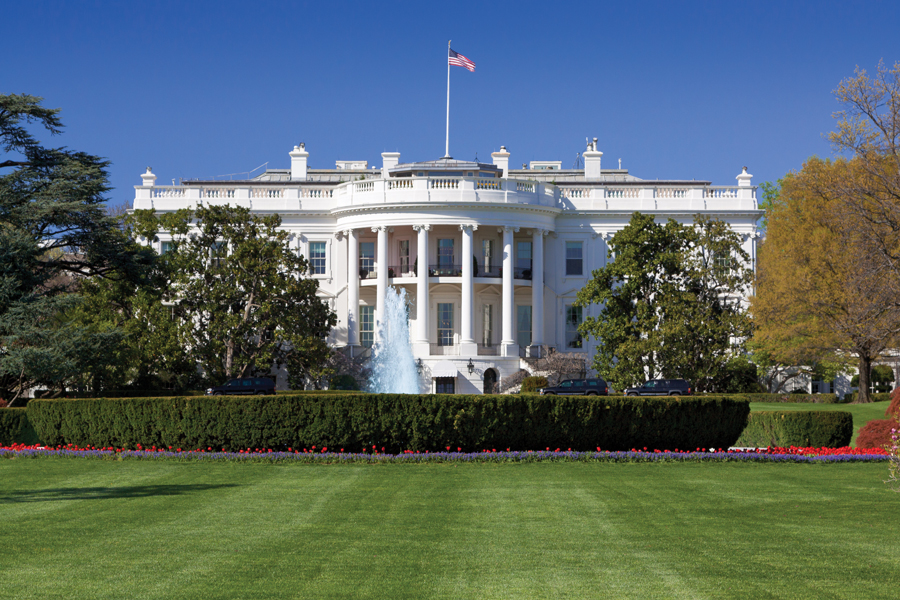

President Joe Biden will propose a minimum 20% tax rate that would hit both the income and unrealized capital gains of U.S. households worth more than $100 million as part of his budget proposal to be released on Monday.
The plan — called the “Billionaire Minimum Income Tax” by the White House — represents the most aggressive proposal by the administration yet in Biden’s efforts to increase taxation on the wealthiest Americans.
If enacted, the tax would generate an estimated $360 billion in new revenue over the next decade, representing more than a third of the White House’s projected $1 trillion cut to deficit spending over that period.
“President Biden is a capitalist and believes that anyone should be able to become a millionaire or a billionaire,” the White House said in a statement. “He also believes that it is wrong for America to have a tax code that results in America’s wealthiest households paying a lower tax rate than working families.”
The minimum tax, first reported by the Washington Post, is similar to a proposal offered last year by Senate Democrats, who suggested offsetting the cost of Biden’s Build Back Better bill with a minimum tax that would apply to taxpayers whose net worth exceeded $1 billion or whose income exceeded $100 million over three consecutive years.
Those who fell under the new law would be required to complete a process called mark to market, where they provide the Internal Revenue Service with detailed accounts of how much their assets gained or lost in value each year.
Under Biden’s plan, households worth more than $100 million who do not already pay 20% tax on their so-called “full income” would be subject to the additional tax. The administration projects that more than half of revenues for the new payment would come from the nation’s roughly 700 billionaires.
Skeptics include key Democrats like House Ways and Means Committee Chair Richard Neal, who has proposed instead an income tax surcharge on the most affluent Americans. Sen. Joe Manchin, a West Virginia Democrat who scuttled the Build Back Better legislation in December, has said he worries the plan is convoluted.
The White House plan intends to address some concerns about very rich households being able to spread out payments on unrealized income over multiple years.
It also addresses a critique by progressive lawmakers that the tax code does little to tax the richest Americans, who can often use a complicated system of credits and deductions to avoid paying taxes all together.
Taxpayers could spread initial “top-up” payments over nine years, and could spread future additional payments on new investment income over five years. Billionaires whose assets aren’t liquid could defer payments until future years, but would owe the government interest. And payments would count against future capital gains taxes.
“In effect, the Billionaire Minimum Income Tax payments are a prepayment of tax obligations these households will owe when they later realize their gains,” the White House said. “This approach means that the very wealthiest Americans pay taxes as they go, just like everyone else, and eliminates the inefficient sheltering of income for decades or generations.”

Some in the industry say that more UBS financial advisors this year will be heading for the exits.

The Wall Street giant has blasted data middlemen as digital freeloaders, but tech firms and consumer advocates are pushing back.

Research reveals a 4% year-on-year increase in expenses that one in five Americans, including one-quarter of Gen Xers, say they have not planned for.

Raymond James also lured another ex-Edward Jones advisor in South Carolina, while LPL welcomed a mother-and-son team from Edward Jones and Thrivent.

MyVest and Vestmark have also unveiled strategic partnerships aimed at helping advisors and RIAs bring personalization to more clients.
Orion's Tom Wilson on delivering coordinated, high-touch service in a world where returns alone no longer set you apart.
Barely a decade old, registered index-linked annuities have quickly surged in popularity, thanks to their unique blend of protection and growth potential—an appealing option for investors looking to chart a steadier course through today's choppy market waters, says Myles Lambert, Brighthouse Financial.
